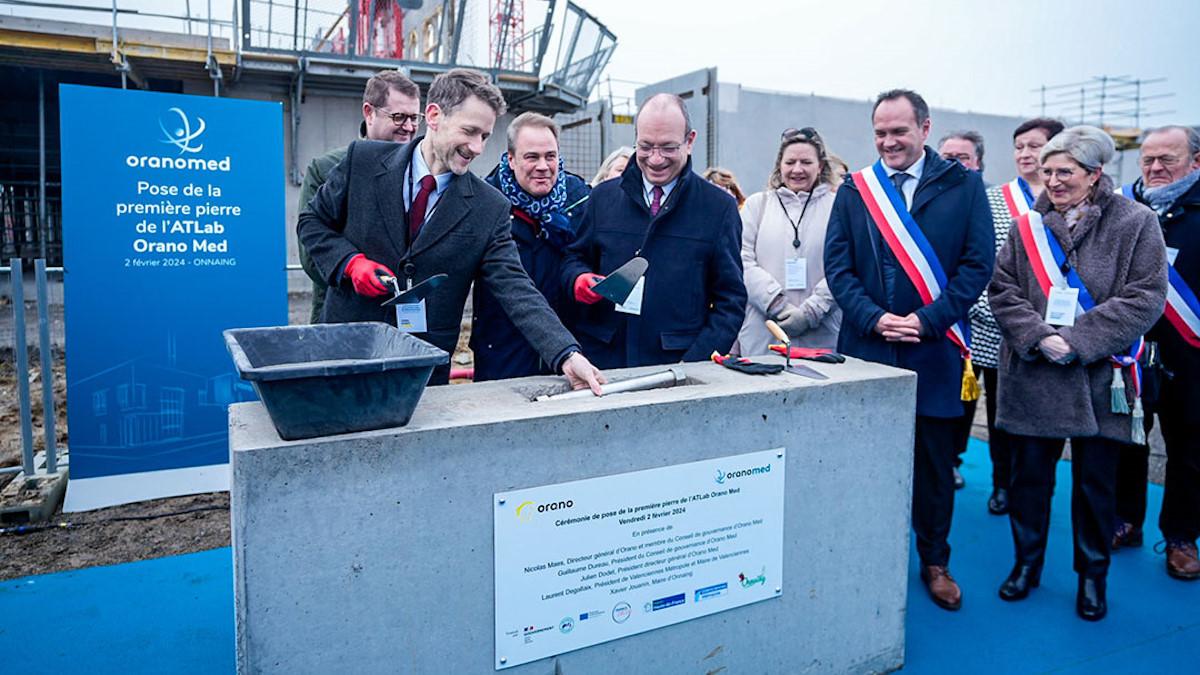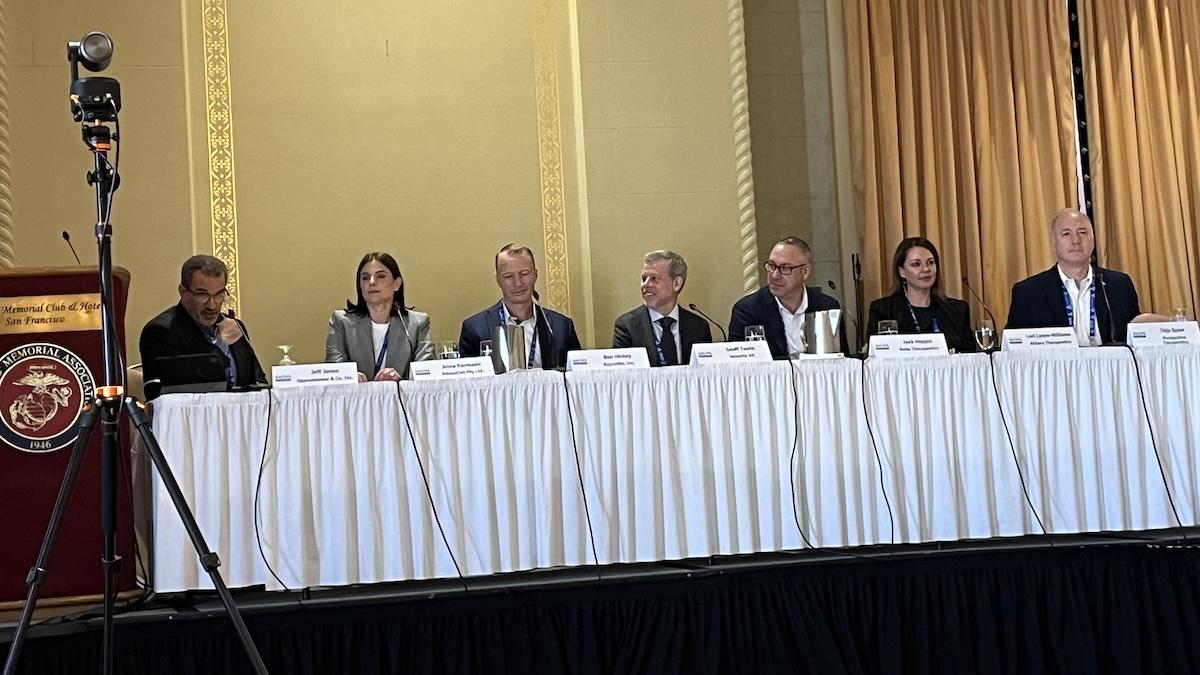Sanofi invests €300m in Orano Med's lead-based radioligands

Foundation stone ceremony at Orano Med's ATLab plant in France, set to be the first industrial-scale pharma facility in Europe for lead-212 isotopes
Sanofi has firmed up its position in the red-hot area of radiopharmaceuticals for cancer with the purchase of a €300 million ($325 million) stake in Orano Med, a subsidiary of French nuclear fuel company Orano.
The transaction builds on a three-way partnership between Sanofi, Orano Med, and RadioMedix – signed in September with a €100 million upfront payment – to develop a radioligand therapy (RLT) for rare neuroendocrine tumours (NETs) called AlphaMedix (212Pb-dotamtate).
The programme has completed phase 2 trials and discussions are underway with regulators over possible filings. If approved, the RLT could become a competitor to Novartis' Lutathera (177Lu-oxodotreotide). It has been awarded breakthrough status from the US FDA as a treatment for gastroenteropancreatic NETs.
Sanofi's investment raises the value of Orano Med to €1.9 billion and gives it a 16% stake in the company, which focuses on the development of radiotherapies based on lead-212, an isotope that emits alpha particles with powerful cell-killing properties but limited penetrating power. That means if they can be accurately delivered to tumours they can have reduced side effects on other tissues.
Using lead-212 as an isotope means that Sanofi and Orano Med can sidestep some of the supply issues that are affecting other RLT producers developing other alpha emitters like actinium-225.
Companies that have plumped for an actinium payload for their RLT payloads include Actinium Pharma – which has candidates for blood cancers in clinical development – as well as Novartis/Mariana Oncology, AstraZeneca, Bristol-Myers Squibb, and Bayer.
BMS recently had to suspend phase 3 trials of its NET RLT RYZ101, acquired as part of its $4.1 billion takeover of RayzeBio, because of actinium shortages, while Novartis has opted to build a new isotope plant at Indianapolis in the US to reduce its reliance on external suppliers.
On that front, the Sanofi/Orano Med partnership will benefit from its close relationship with Orano, tapping into the nuclear fuel company's established manufacturing process for isotopes, which have a limited shelf-life due to radioactive decay. Lead-212 has a half-life of just over 10 hours.
Earlier this year, Orano Med started work on what it said was Europe's first industrial-scale pharmaceutical facility dedicated to the production of lead-212-based RLTs.
Sanofi's chief medical officer Dietmar Berger has previously said that lead-212 has a "differentiated biophysical and clinical profile, reinforcing its potential to be a transformative radioligand therapeutic for patients across multiple difficult-to-treat rare cancers."
Other companies are looking at lead-212 RLTs, meanwhile, including ARTBIO and POINT Biopharma/AdvanCell, but Orano Med is thought to be in the lead in the category.
Sanofi's chief executive Paul Hudson said he is "excited to partner with Orano in establishing a French pioneer that unites our respective expertise in biopharma and nuclear technology to drive groundbreaking progress in the fight against cancer."












